Join the discussion below

Felice Gersh, MD is a multi-award winning physician with dual board certifications in OB-GYN and Integrative Medicine. She is the founder and director of the Integrative Medical Group of Irvine, a practice that provides comprehensive health care for women by combining the best evidence-based therapies from conventional, naturopathic, and holistic... Read More
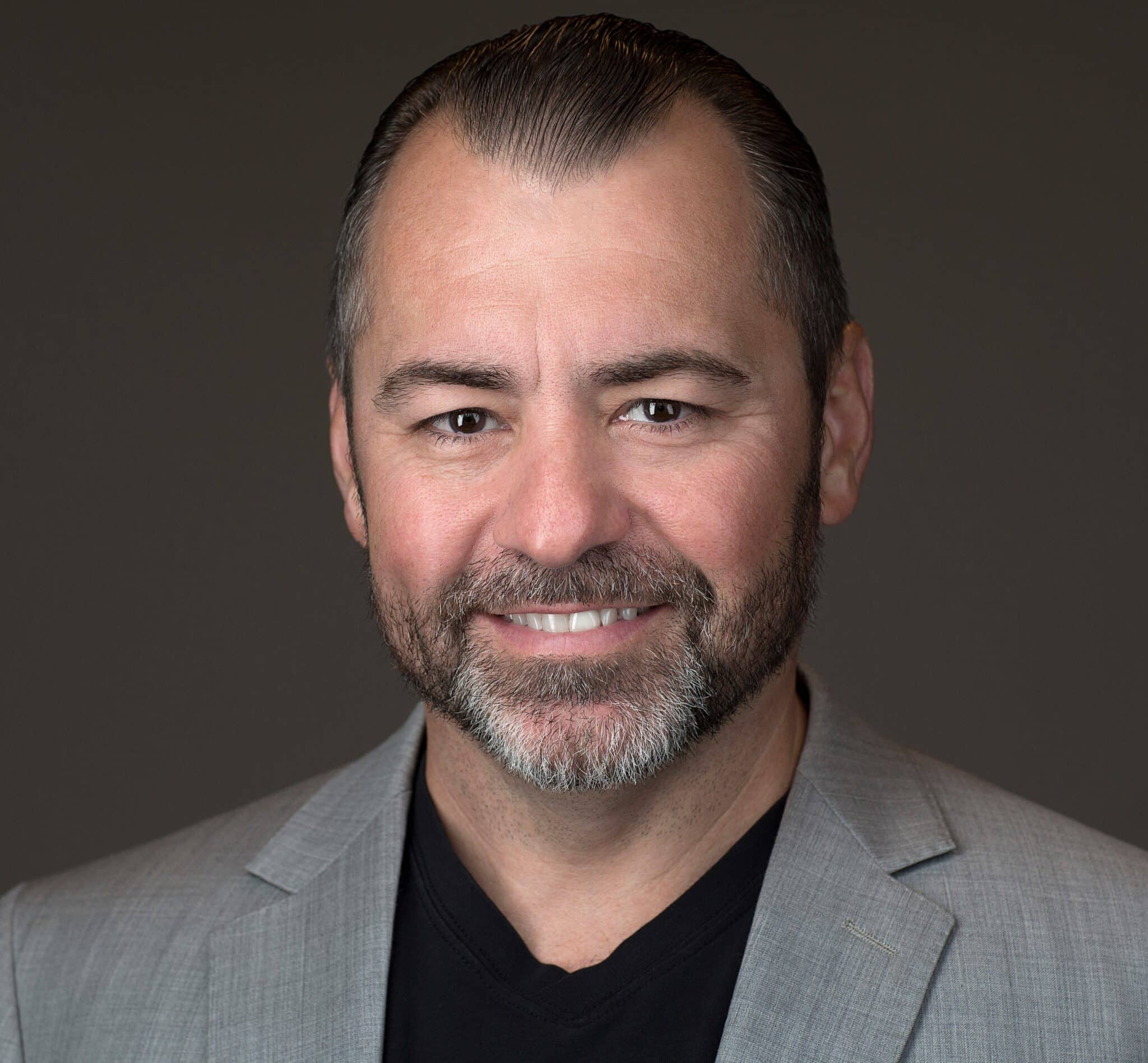
Dr. Nathan Bryan is an international leader in molecular medicine and nitric oxide biochemistry. Specifically, Dr. Bryan was the first to describe nitrite and nitrate as indispensable nutrients required for optimal cardiovascular health. He was the first to demonstrate and discover an endocrine function of nitric oxide via the formation... Read More
- Learn about the role of nitric oxide in regulating blood flow and maintaining a healthy circulatory system
- Understand the consequences when the body can’t produce nitric oxide effectively
- Discover proven strategies to enhance nitric oxide production for better heart health
- This video is part of the PCOS SOS Summit
Felice Gersh, MD
Welcome to this episode of the PCOS Health Summit. I’m your host, Dr. Felice Gersh, and I’m so pleased to introduce our guest for today’s episode, Dr. Nathan Bryan. I have known Nathan for many years and he is the one who educated me on this incredibly important topic that we’re going to discuss today. Nitric oxide. So welcome, Nathan. I’m so pleased to have you join us today.
Nathan Bryan, PhD
Dr. Gersh It’s always a pleasure and it’s really good to see you.
Felice Gersh, MD
Well, I would love for you to tell us a little bit about your career and how you got into nitric oxide. And then, of course, we’re going to talk about, well, what the heck does nitric oxide have to do with PCOS and all about what every person out there should know. So tell us about you first.
Nathan Bryan, PhD
Well, I’m a small town Texas boy. I grew up in a rural community in Texas, and I graduated from a really small high school. And then I attended University of Texas at Austin, where I got a degree in biochemistry. And then I went to LSU School of Medicine, where I enrolled in their Ph.D. program in Molecular and Cellular Physiology. And that was where I was introduced to the science of nitrous oxide. A Nobel Prize had just been awarded for its discovery. And so the scientific community knew this was an extremely important molecule. But there was still so much unknowns about nitric oxide. You know, it’s a gas that’s really one of the first gas use signaling molecules that had been discovered and really the mechanism completely elucidated. And that’s what led to the awarding of the Nobel Prize. So I spent, you know, I finished my Ph.D. in two and a half years and made a number of discoveries. And then I went to Boston Medical Center, where I trained as a fellow in cardiovascular and cardiology and vascular biology. And then I was recruited by Fred Meyer, one of the gentlemen who shared the Nobel Prize for the discovery of nitric oxide.
For my first faculty position at the University of Texas Health Science in Houston at the Institute of Molecular Medicine, where really our objective was to understand the mechanism of any disease to the extent that we can now correct it and fundamentally get to the root cause. And I spent, I don’t know, ten or 12 years as faculty at the University of Texas, made a number of discoveries that have several thousand issued US international patents. And now the next step of my career was really to take the basic science that we had beginning to understand and discovered over the past 20 years and now translate that into clinical medicine. So today I am really retired from full-time academia. I have a number of companies where we commercialize nitric oxide-based technologies. But really my objective since day one has never changed. And it’s to really educate and inform not only the medical community, scientists, and physicians, but also the general public on the importance of nitric oxide. And I think that’s why what you’re doing with these summits in the US summit is really kind of bringing what most physicians would claim to be completely unrelated molecules or syndromes and symptoms and really tie it together to get to the root cause of whether it’s polycystic ovarian syndrome or any other poorly managed or fully explained disease or syndrome.
Felice Gersh, MD
Well, I know that I was so excited to learn about nitric oxide, and of course, most people have no clue what really is going on in a woman with PCOS that they in fact have multiple dis biotic microbes, biomes like the oral microbiome. No one even thinks about what’s the importance of the mouth and of course all over the gut that has been proven and multiple peer reviewed articles have been published on that fact as well, that in the ovaries of women with PCOS that they don’t have the proper functionality of the enzyme that converts testosterone into estradiol and therefore they actually have a total body deficit of that vital life hormone estradiol. And I know all of this comes into play with nitric oxide and I was so amazed to find that it’s not nitrous, it’s not laughing gas that people get. So confused about that, but it is a gas and that there are actually gases and not very many that are critically important. So I was hoping you could elucidate a little bit about the role. We’ll start with maybe the mouth, the oral microbiome, the gut, and also just what nitric oxide is so critically important for and why we should really strive to have lots of it.
Nathan Bryan, PhD
Yeah, well, you know, the irritating thing to me is the basic scientist about medicine is, you know, a lot of these syndromes or symptoms are name based on observation. But really and I think the reason for that is so it’s polycystic ovarian cysts. So it’s a syndrome. Symptoms to me mean that the medical community has really no idea as to what it’s like. It’s a compilation of symptoms that they call a syndrome. But for me, as a biochemist and physiologist, there’s a mechanism, there’s a root cause of every single disease and every organ, whether it’s the ovaries, the brain, the heart. The function of that organ is dependent upon adequate blood supply and circulation. And nitric oxide is what controls and regulates blood flow, oxygen and nutrient delivery to every organ, tissue, and cell in the body.
So that’s kind of the broad kind of mechanism of what nitric oxide does. It reduces inflammation, oxidative stress, and immune dysfunction, which obviously are manifestations or symptoms of PCOS and really any inflammatory disease. And so we discuss, we and others discovered probably 20, 25 years ago that the oral microbiome is partly responsible for the production of nitric oxide and that this nitric oxide bioactivity by the oral microbiome controls and regulates perfusion to all organs, tissues, and cells in the body. So if there’s dysbiosis in the oral cavity, what we’re finding is that it leads to an increase. A decrease in nitric oxide production typically sees an increase in blood pressure, inflammation goes up, and you lose the regulation of oxygen, the nutrient delivery to every organ, tissue, and cell in the body. So, at a broad level, that’s the role of nitric oxide, and it’s really understood now that the loss of nitric oxide production precedes any vascular structural change. Is there any onset of symptoms in chronically poorly managed patients by many, many years, sometimes decades? So it’s the loss of nitric oxide. That’s the earliest event in the onset and progression of most, if not all, chronic diseases or syndromes, as you call them.
Felice Gersh, MD
You know, I think that is so key and so poorly recognized. And I’m going to be talking so much about this word syndrome, and I’m so glad you brought that up, because when you look at the fundamental issues that are going on in the vascular system of women with PCOS, it’s really very, very disturbing to understand, to recognize that these young women have really what I call accelerated aging of their vascular system, that they have the vascular system of someone who would be potentially decades older because of this loss of nitric oxide, because now we know women with PCOS do have a deficit in their production of nitric oxide because of these multiple etiologies, the oral microbiome is of the gut microbiome and estradiol, which we’ll touch on the importance of that in the functioning of that critically important enzyme endothelial nitric oxide synthase, of course, which most people have never heard of, even doctors ever even heard of that. And I also want to touch on, because vascular health is, of course, important for delivering, like you said, oxygen and nutrients, you know, to every organ system in the body.
That’s why you can have multi-organ systems involved in this sort of process, but also pregnancy. And that is also not talked about. And we’ve talked about that in the past, you and I, about how all of so many of the issues that are, you know, the complications of pregnancy, which women with PCOS have such a sad abundance of like pre-eclampsia, gestational hypertension, that this is really a vascular condition and that, you know, getting proper nitric oxide levels in the body of a woman prior to pregnancy and then of course throughout the pregnancy is so important. So, I mean, this is why it’s like I just love talking to you and having everyone suddenly learn about this critical thing. So maybe what we could do is tell us a little bit more in depth, like a little bit more. We’ll start with the oral microbiome and because like just people hearing for the first time that what goes on in your mouth can affect your blood pressure, your overall health status and so on. And then of course, well, what can they do about it to try and have an optimal mouth microbiome? And how is that pathway like? What does it have to do with nitric oxide anyway, the mouth and making this gas.
Nathan Bryan, PhD
Yeah. Well I think it’s important that they realize, you know, that there’s two ways the body makes nitric oxide sweat to come from two different directions and then try to mitigate the things that are going on in these patients that are disrupting nitric oxide production from both pathways. So we’ll start with the oral microbiome. So the food that we eat and really to explain the mechanism of a, you know, say a mediterranean diet or a Japanese diet or a vegetarian plant based diet. The Cardioprotective benefits of these types of dietary patterns are explained by the production of nitric oxide. Without going too deep into the biochemistry. We know that most of these dietary patterns contain a molecule called inorganic nitrate in three months, and when we consume these vegetables, it’s taken up in the gut and then put in our salivary glands. And now after a meal, after a plant-based meal or a Japanese type of dietary patterns, that nitrate is secreted in our salivary glands for the next six, eight, 10 hours. And there are nitrate-reducing bacteria that live on the tips of the tongue in our mouth. These bacteria are required to metabolize an organic molecule or an inert molecule nitrate into bioactive nitrate content. So if you don’t have these right bacteria, you have pills, you’re using mouthwashes fluoride in your toothpaste, and you have some type of oral infection.
Then you don’t get the oral conversion of this molecule into nitric oxide. So the consequences of that are very clear. We published on this. So if you use mouthwash, eradicate the oral microbiome, your blood pressure. Not only that, you lose the protective benefits of exercise, and that’s really remarkable because that shows kind of the systemic effects of an early produced bioactive molecule, whether it’s either, you know, getting nitrite or nitric oxide. So you have to understand and maintain kind of a diverse microbiome, whether it’s in the mouth or the gut. The evidence is clear. The greater the diversity of the microbiome in the mouth, in the gut, really in and on the human body is the most health promoting. And when we do things to eradicate or disrupt the microbiome, then that leads to systemic disease.
You know, this was first appearance by fecal transplants. I mean, this, you know, what was 15, 20 years ago when you could transplant the feces of a healthy person into a sick person, whether it’s, you know, serious patients or patients without immune disease, and get really an improvement or amelioration of the symptoms. I mean, that really to me showed me the importance of the microbiome in mitigating human disease, or at least the symptoms. So what does that mean? If you’re using mouthwash, you have to stop. I mean, the evidence is clear for everything in science and medicine. It’s about a risk-benefit analysis. And so the risk of using mouthwash and disrupting the oral microbiome now far outweigh any benefits you get from that because there’s a competition for resources in the human body that these bacteria are set up against. And so when we kind of kill the good guys and the bad guys start showing up and causing infections and different pathologies. So if you’re using mouthwash, you have to stop. Fluoride is an antiseptic. It’s a neurotoxin. And obviously, it destroys your thyroid function because it competes with iodine binding for the thyroid hormone. So get rid of fluoride in your toothpaste. You know, most municipal water systems have fluoride fluoride in their water to kill the bacteria that may be present. And so I encourage people to get a filtration system that removes fluoride from the drinking mark. So those are the major two issues really starting fundamentally in the mouth and stop using mouthwash, get rid of fluoride, and then now the body’s primed to do what it’s designed to do. And then the other kind of step in this process is stomach acid production, which I think that’s leading to an enormous onset of autoimmunity in many chronically poorly managed diseases, because we need stomach acid to not only make nitric oxide, but to break down proteins into amino acids. And, you know, the use of antacids is now rampant worldwide. There’s over 100 million prescriptions written for antacids every year. That’s not even counting the over-the-counter purposes. Now you can get Prevacid, Prilosec, Nexium, all that over the counter. Shutting down stomach acid production is probably one of the worst things you can do for the human body.
Felice Gersh, MD
You know, absolutely. 100% on all of those. And for women with PCOS, because they don’t have the right microbiomes, because they don’t have the right amount of estradiol, they have, you know, particular challenges. Now, some of the people out there probably say, but I want one of those dental whitening toothpaste. So I was wondering what you thought about that and then also about when people are sucking on all these artificially sweetened like lozenges, you know, like breath mints and all these things that are filled with these artificial sweeteners because they don’t want the calories. Yeah. So like, what are some of the other, like we’ll say, loopholes that may be sabotaging their oral microbiome? And then also, I just wanted to mention that estradiol is really critical for a functionality of what’s called the autonomic nervous system, which controls the nervous system of the gut that’s called the enteric nervous system. So women who don’t have enough production of estradiol, which of course includes menopausal women as well as women with PCOS, are more prone to acid reflux and they always jump to using these antacid. The PPIs, like you mentioned and there are way better ways to deal with that than to sabotage your overall health and get rid of stomach acid. It’s like so amazing that there is this misunderstanding of what even acid reflux is thinking that it’s too much stomach acid when it’s really abnormal motility of the gut and often reduced production of stomach acid. So but getting back to like these other things, because so many people don’t realize all the ways that they can sabotage their oral and gut microbiomes.
Nathan Bryan, PhD
Yeah, you know, you make a very good point. There was a meta analysis published in 2019 showing that there’s a direct correlation or at least an association between reduced nitric oxide production and the severity of PCOS. So this was really, I think in the literature kind of the first meta analysis of papers to show a clear association between loss of nitric oxide production and the symptoms of PCOS. And so when we talk about what disrupts nitric oxide production, so it’s disrupting the oral microbiome, it’s answer your question. You know, we’ve learned a lot over the past 20 years on ways to maintain the normal, healthy oral microbiome. But there’s still so much we don’t know. You know, in the NIH, when I was in academia, you know, most of our grant funding comes from the National Institutes of Health.
And so we have to submit grant applications, get it reviewed by our peers, and then hopefully get money to enter these important scientific and biological questions. But the answer is, we really don’t know what all is affecting the oral microbiome. I think anything that’s synthetic, especially synthetic artificial sweeteners are tricking the system and the body always responds, you know, and it leads to an upregulation or downregulation. There’s always changes to what you put in the human body. But I think we have to keep it simple. You know, we you know, I think it’s don’t put any antiseptic in your body. I mean, these bugs always evolve and respond to that. And so we have to understand and really it’s about stop doing certain things rather than starting to do start new hygienic practices.
So it’s stop using mouthwash, stop using fluoride or any other intercept. And so people always ask me, well, what about certain, you know, essential oils or all these natural mouth rinses? And the answer is we just don’t know. I mean, I’m not going to sit here, pretend that we know everything. We need to know about nitric oxide. There’s still a lot to learn, but I think the most important thing, what the scientific literature tells us, is that any antiseptic rinse, whether it’s alcohol-based or chlorhexidine or anything that’s antiseptic by nature, disrupts the oral microbiome. Also, the disruption in nitric oxide production, an increase in blood pressure, loss of regulation of blood flow, and the onset and progression of many, many diseases or syndromes.
Felice Gersh, MD
So you touched on the use of antiseptics. Well, many women with PCOS suffer from recalcitrant cystic acne and they’re put on often unbelievably long term antibiotics. So what happens is, of course, they have very altered. You’ve mentioned microbiomes of the whole body. The skin microbiome of women with PCOS is also abnormal. And of course, so now you’re adding insult to injury by damaging other microbiomes with all the antibiotics that are used. And I know that, you know, you’re such an amazing innovator, inventor, scientist, developer. And we’ve talked about nitric oxide products for the skin. And there’s nothing that is more devastating to a woman’s self-esteem than having acne every time they look in the mirror and they see, you know, their scars and their redness and the swelling and so on. So what can you suggest for women? Like, I don’t want to be on all these antibiotics and now they understand what it means when you start going on a killing spree and you’re killing the good guys and the bad guys, it’s like wiping out everything. So what can we do about skin and nitric oxide and what’s the relationship there?
Nathan Bryan, PhD
Well, I think, you know, that’s the frustrations. And, you know, you treating a lot of these PCOS patients and really trying to change the course of the treatment regimen and get these patients better. But you, I mean, you really illustrated this perpetual cycle of the treatment exacerbating the disease of the syndrome. And so antibiotics, KPIs, all that leads to further endothelial dysfunction, loss of nitric oxide and exacerbation of the syndrome, the symptoms and the disease. And so what we’re trying to do now is understood and the regulation of that pathway And so when we start, when we figured out how to make nitric oxide, it was the first person to ever develop a solid dose form of nitric oxide gas. And so once we did that, then I thought, well, how else can we deliver nitric oxide gas?
And topically, you know, this, this really originated from treating my dad who’s a paraplegic with these non-healing ulcers. And I developed a topical nitric oxide-releasing gauze that really healed his non-healing wounds. So now I thought, okay, that’s really important in terms of clinical utility. So I developed a dual chamber nitric oxide delivery system, and now we’re finding this has really enormous therapeutic benefit. But the skin is an organ, right? Just like the ovary, just like the heart, the brain. And when you don’t get enough blood supply to that organ, that organ fails. And so one of the main functions of the skin is barrier function. And so the barrier function breaks down, you start to get infections, there’s decreased blood supply to the skin, to the dermis.
So the immune system is really isolated from these infections. So you get chronic infections like cystic acne. There’s a lot of bacteria in these pustules. So when we apply nitric oxide, topically, not only is an anti-microbial to kill the bacteria in the pustules, but it reduces the inflammation. You start to perfuse the cells of the dermis, it improves cellular turnover, and then you get these stuff off bad cells that don’t work in the body makes new cells that work properly. We get improved collagen deposition, improved hydration, tone, texture, and clarity of the skin improves. And it’s you know, it’s really very simple as all we’re doing is just restoring blood supply and circulation and getting proper oxygen and nutrients to every cell in the body. And that’s really the fundamental basis of everything we do. When you do that, the body heals itself. I mean, physicians don’t heal patients. Their body heals the patients. We just have to give the body what it needs. The body heals itself, but also get out of the way, you know, minimize the use of antibiotics, eliminate mouthwash, eliminate acids. Now, give the body all the nutrients that it needs in the body does its job.
Felice Gersh, MD
I don’t know if you realize for the audience hearing this like this is like a monumental revelation that you can actually improve the skin of women with PCOS, you know, who are suffering miserable, bleh. And they’re going on drugs like Accutane, which have some other serious issues that can be associated. And also women with PCOS have some of the highest recurrence rates of acne after a course of Accutane unfortunately and often are put on it chronically, which is like a new thing to be on a drug like that chronically and yet to just hear that you can put on this amazing product that can actually increase blood flow, improve every aspect of skin health and the fact that you healed something that no one could heal on your dad, you know, a wound that wouldn’t heal because really people don’t think of acne the way I do. And I know you do. It’s really like wounds, right, that need healing.
And, you know, how do you heal a wound? Like we know that people who are diabetics, that’s always like a good way to look at that. And of course, unfortunately, women with PCOS have much higher rates of developing diabetes at younger ages. But it turns out that diabetics will be often the ones that go to the moon clinics because they have non-healing wounds, because they have such poor vascular systems. Right. They don’t. They have the arteries are not working well. They have lots of plaque. They have low nitric oxide and they don’t have proper blood flow to the areas of the skin that are wounded, that are not healing. And by using nitric oxide and I blow, I want to hear how we can do it. Something systemically as well. So but topically, by putting this product on the skin, you can amazingly increase blood flow and help promote healing of acne, which is so hard to heal. That’s so I mean, this is like everybody who listen to this, listen to it again, because your explanation was so brilliant. And so we’re talking now about local application, which is amazing. What about systemic? Now you’ve talked about how to try to work with the mouth and the gut and so on. Is there anything else that you’ve invented that can be used for increasing systemic levels and also getting into that? Is there any way that you can measure like how can a woman know, like, what is your nitric oxide? And are you getting better or getting worse in terms of your production of it?
Nathan Bryan, PhD
Yeah. You know, you make a very good point. And so what everything that I do is designed around improving the production of nitric oxide in the human body. And again, as I said, when you do that, you can improve blood supply and circulation, reduce inflammation. But again, understanding nitric oxide is a gas. And in 2007, we were the first lab to demonstrate that nitric oxide is a hormone and obviously PCOS is a hormonal issue partly. And so we have to understand how do we restore the production of the nitric oxide hormone? But it’s a gas. Once it’s produced, it’s going in less than a second. And so in this or solid dose form of a nitric oxide gas, I developed what’s called an early disintegrating tablet. So you put this tablet in your mouth, and as it’s dissolving over 5 to 6 minutes, we’re releasing a known amount of nitric oxide over a period of time, and that nitric oxide then acts as a hormone and it goes and does its job. And so we’ve see that we can dilate the resistance arteries, we can help support healthy blood pressure. It opens up the microcirculation, the really small vessels that, you know, our lead, our basically allowing the oxygen and nutrients, every cell in the body. And so we have to hit this from inside out because there’s a limit of diffusion of nitric oxide that we apply topically.
It’s only going to diffuse a couple of millimeters into the skin, but that’s sufficient enough to open up capillaries, recruit capillaries in what we call hyperemia or an increase in blood supply to that local area. And the beauty about the topical, as you can actually see it, working before your eyes. So when you apply it to your skin, the skin will turn kind of a slight pink. And that pink is a reflection of increased blood flow. You can actually see the blood flow going to where we apply them, but that’s not enough. You know, we have to treat systemically and with this laws and we can certainly do that. We can produce nitric oxide. And importantly, we see that if we give nitric oxide hormone through this gas, we also recover the nitric oxide synthase enzyme.
So the patient’s own ability to make nitric oxide improves. And it’s really a remarkable kind of mechanism in the self-fixing propensity of nitric oxide to heal the body, to heal the blood supply, and to get adequate circulation to every organ, tissue, and cell in the body. So that’s what we’ve done over the past ten, 15 years. And now we’re taking this technology through FDA clinical trials because, you know, I’m trained as a drug discovery biochemist, and my objective is to give you physicians and clinicians the tools you need, whether it’s medical devices, drugs to help cure, prevent, or treat human disease. In order to do that, we have to go through FDA clinical trials and we’re doing that now with ischemic heart disease. We’ve got an Alzheimer’s drug program, topical drug product for diabetic and not healing ulcers. And so my objective is to take this core technology we discovered 15, 20 years ago and get that into every major market segment around the world. And drugs are kind of our next target.
Felice Gersh, MD
Well, it’s so desperately needed because look at the overall health of our population and women with PCOS in particular, it’s, you know, like you talked about very in the beginning, it’s a syndrome. And typically the conventional medical world only addresses some symptoms. They’re not getting to the underlying issues. They don’t even know about this amazing issue involving nitric oxide. And I touched on earlier that women with PCOS, of course, they’re the greatest, largest group that has infertility and of course, that’s really involved in everything, in having proper blood flow to the uterus, to the ovaries. We know that ovaries are not functioning well. They don’t get proper blood flow as well. And you’re not going to ovulate. You’re not going to have good quality eggs.
And of course, in pregnancy, women with PCOS have high rates of pre-eclampsia, which is a really a total vascular type of system, you know, degradation issue and, you know, renal issues and you know, issues that you can have heart failure afterwards, you know, like postpartum cardiomyopathies and heart failure because nitric oxide is involved in in the myocardium, the heart muscle as well, and of course, placental malfunction. So you have for proper, you know, nutrient supply to the to the fetus developing and gestational hypertension, gestational diabetes. So what can you offer, you know, suggestions other than, you know, all the amazing suggestions already for, say, a woman who wants desperately to get pregnant and once she becomes pregnant, is there anything you can suggest for that group?
Nathan Bryan, PhD
Well, I think, you know, I would say nitric oxide is foundational. You know, you have to start there because nothing else is going to work optimally until you restore the proper circulation and perfusion to every cell in the body. But it’s not an end all, be all, cure all. It’s certainly not a panacea or a silver bullet. And I think you have to dig a little bit deeper to then start correcting a lot of these other things. You know, for me and what I get, the biggest kind of bang for Buck is a simple micronutrient analysis. You know, you go back to the days of Linus Pauling, where he was famous for quoting that all chronic disease comes from a nutrient deficiency. I think I’ve kind of expanded upon that. For me, chronic diseases cost from two things, not just one thing.
Number one, the body’s missing something that it needs. Or number two, it’s exposed to something that it doesn’t. A toxin or some toxicant, whether it’s environmental or in the diet. And then so if you remove the source of toxicity from the patients, then do a simple micronutrient analysis and see what maybe trace mineral or nutrient or vitamin these patients are missing and then give it back. Then, as I mentioned earlier, the body heals itself. So, you know, iodine is critically important, especially in the Western diet, which is the standard American diet. You’re not getting any iodine from the diet. And iodine, as you know, is critically important, not just for stomach acid production, but proper thyroid function. We have an epidemic of hypothyroidism and we find that, you know, simply restoring these missing nutrients like iodine, five and a half milligrams of vitamin D, it’s very cheap, it’s very effective.
And then start interrogating each individual patient when this whole era of personalized medicine and it’s really impossible to ascribe a one-size-fits-all for every single patient because the etiology of their disease may be completely different. But that’s where you start. You start with restoration of nitric oxide and proper circulation, and then you start digging a little bit deeper, restore the hormones, replace missing nutrients, and then see what maybe they may be exposed to. You know, we have these plastics that mimic the effects of estrogen. You have all these environmental toxicants that we’re exposed to that disrupt human biochemistry and physiology. So, you know, for me, there’s no reason why we couldn’t be able to treat and prevent every single human disease on Earth because mechanistically and biochemically, we know what the causes. But we have to translate that into clinical medicine. And that’s really the hurdle in the very well.
Felice Gersh, MD
It’s so funny you talk about that. I say that’s my role as I call myself a synthesizer. I look at the basic science research and I and I, I scratch my head and I say, why isn’t this being clinically applied? You know, why are all these amazing researchers like you and others, you know, finding out all this important basic information about how the body works, and yet it’s all being ignored in the clinical world of medical practice. So, you know, that’s what we’re bringing to the people, you know, understand the foundations of how the body works. That’s the beginning of solving these problems, right? Not like putting smoke and mirrors, you know, just covering it up with a coat of paint. And I’m so glad that you brought up thyroid and Hashimoto’s because that is much more prevalent in women with PCOS. And I know that there’s a link between nitric oxide and the function of the immune cells. I think there’s something relating to like regulatory cells and so on. And so I thought maybe you could just touch on that briefly about like what’s the role of nitric oxide and immune function, immune health?
Nathan Bryan, PhD
Well, it was actually it was one of the first mechanisms of nitric oxide is in our immune system because we fight off invading pathogens when monocytes, neutrophils, white blood cells and even some t cells will stimulate nitric oxide production. And as I mentioned, nitric oxide binds to the iron sulfur centers of bacteria and shuts down the respiration. So that’s mechanistically how they keep the body free from bacterial infections. But when we lose the ability to make nitric oxide, then we become immunocompromised. Because now these bacteria really kind of defend themselves because our body can elicit a robust immune response. Not only can we not get the immune cells to the side of infection because of poor circulation, but once it’s there, the immune cells are going to compromise in their ability to generate nitric oxide to kill the infection.
So now you have these kind of resistant infections or latent burrows viruses that become that evade our own immune system. And so we can stimulate nitric oxide production. And there’s some evidence that T regulatory cells would do that. But again, if our bodies compromised in its ability to make microbiota, then it can stimulate or activate till the cows come home. But you’re never going to get any nitric oxide produced until you recover the enzyme and fix the fundamental basis of nitric oxide production. And that’s what we’ve been doing for the past 20 years.
Felice Gersh, MD
Well, so, so critically important. And in terms of I’m so glad you mentioned and we’re going to have other episodes on endocrine disruptors. So we didn’t touch too much on the vascular production of nitric oxide. And so I was wondering, you know, is there any evidence I mean, it seems intuitive that if you have a body filled with endocrine disruptors, chemicals that can interfere with the production, distribution, receptor function, elimination, degradation, all these different things involving these vital life hormones like estradiol, which is a key player in the nitric oxide production within the vessels that endocrine disruptors can lower your production of nitric oxide by interfering with estradiol role. And and you know, just maybe a couple of comments on that.
Nathan Bryan, PhD
Sure. So the enzyme nitric oxide synthase is found in the endothelial cells. These are the cells that line up blood vessel, start the body. And so we regulate that through activation or stimulation and estradiol as you does that. And that’s why postmenopausal women then have a precipitous decline in nitric oxide production because they’ve lost the stimulating, activating molecule to produce nitric oxide. And then when you have these endocrine disruptors, it’s not only affecting the secretion of hormones from endocrine plants, but it’s also causing a lot of oxidative stress in the human body. Your body’s trying to clear these and it’s causing it’s wreaking havoc on the system. And the rate limiting step in the enzymatic production of nitric oxide is through oxidation of a molecule called tetrahedral.
And once you oxidize that cofactor, it uncoupled the nitric oxide synthesis zone. And now that enzyme produced the superoxide, which is an oxygen radical instead of nitric oxide. So we have to maintain a certain redox balance to prevent the oxidation of bh4. And you have to realize what’s causing the oxidative stress. Is it these immune disruptors? Is it a poor diet, inflammatory diet? Is it some genetic predispositions like an overexpression of oxidants or g six PD deficiency, all of these both from a genetic and environmental consideration, are disrupting nitric oxide production. And then that’s the earliest step that puts these patients on a very slippery slope to development of syndromes or chronic disease.
Felice Gersh, MD
Wow. So my takeaway from that is lower as much as humanly possible. Your exposure to these ubiquitous unfortunately ubiquitous endocrine disruptors like plastics of all sorts, flame retardants, you know, stain resistant products and so on, try to get a really fabulous diet filled with nitrate containing foods and lots of antioxidants, foods that are going to be anti-inflammatory, that are going to promote the proper functionality of the body so that you don’t uncouple this critical production of nitric oxide and end up with poison instead, essentially, you know, it goes down the wrong pathway because you don’t have the right state. Like you said, redox system, you have too much oxidative stress in your body. You know, avoid all these horrible toothpastes that are going to damage, you know, your mouth microbiome, the mouthwashes and other chemical containing foods that you may be sucking on and drinking and so on, exposing your mouth and avoid all of these ridiculous acid reducers, the pills and deal with the fundamental issues of digestion, you know, like eat the right foods, eat the right at the right time of day and so forth. And in terms of I mentioned earlier, like measuring nitric oxide, is there anything you can suggest you know to so that people can maybe know their nitric oxide status?
Nathan Bryan, PhD
Yeah, you know, it’s a, it’s a fundamental question that I’ve tried to address over the past, I don’t know, 15, 20 years because nitric oxide is a gas and gone in less than a second. It’s not like cholesterol or vitamin D or we can draw blood and then send it to a lab and come back with a number. But so we really rely on symptoms. But I think in 2009 or 2010, I developed a salivary test strip. This was really the first point of care, noninvasive diagnostic for nitric oxide. And so they’re a good indicator of kind of what we call total body nitric oxide. But I’ve gotten away from using these test strips because of a number of false positives.
There is no false negative. So this the celebrate test strip apply some saliva to the end of it in a good kind of replete nitric oxide replete patient, you would see a nice pink dark color on the test. What we’re measuring is celebrate nitrite. You know, that’s the old chemistry that we put on the end of the test strip. And so there are no false negatives. If you don’t turn that tested bright peak, then you’re clearly nitric oxide deficient, but it doesn’t tell us why. Right. You have to dig a little bit deeper. But the concern for me was the false positives. So if you got in, the example came in a 50 year old obese, hypertensive diabetic patient with erectile dysfunction and he spit on the test strip and turned it bright pink.
So obviously that guy has the clinical symptoms of a complete nitric oxide deficiency, but yet he turns the test to me. So in an interrogating that response we find out that he had an active infection and then the local immune response is producing nitric oxide in the oral mucosa. It’s oxidized to nitrite and turning that tester in. In 2004, we were the first to publish that.
A local inflammatory response leads to systemic nitric oxide depletion, shutting down feedback, inhibiting the vascular nitric oxide production. So that really was concern for me. And you can’t always rely on these test strips. What we have to do is rely on symptoms. So how do you know if your nitric oxide deficient, if you have an elevation in blood pressure, if your blood pressure is greater than 120 over 80, your compromised people can make up to if you have erectile dysfunction, you’ve lost the regulation of blood flow to the sex work. If you have insulin, type two diabetes, nitric oxide is part of the insulin signaling pathway. And if you insulin resistant, we can make nitric oxide. If you have mild cognitive disorders faster, dementia, Alzheimer’s, you’ve lost the regulation of blood flow to the brain. That’s a nitric oxide problem. If you get tired walking up a flight of stairs, that’s a nitric oxide problem. So these are all symptoms of nitric oxide deficiency, that is. We leave it up to brilliant physicians and clinicians like you to synthesize that information, make a proper diagnosis, but more importantly, start to implement safe and effective therapeutic strategies to fix the underlying problem and, not just write a prescription for a cholesterol-lowering medication, which has become the standard for an enhanced.
Felice Gersh, MD
I think that it’s such a critical thing to take away that you should just recognize like use your clinical acumen, right. To recognize who is at risk to have low nitric oxide. I think everyone out there should know that every woman with PCOS is in that group of humans that have reduced levels of nitric oxide. And also just to throw in, since I take care of women at all ages, women that go through menopause, as you mentioned. So just assume that you could do much better in your nitric oxide production department and that you’ll benefit. And you can never I mean, there’s never a problem of you’re going to be too healthy, so don’t worry about that part. You know, the more things you do to improve your overall health, nitric oxide production, you know, toxin lowering, you know, strategies and so on, it’s all going to be beneficial. So I think this was amazing. You know, every time I talk to you, no matter how many times it is, I always learn many new things and I’m just so excited with your life journey and educating and researching and all the things that you’re doing. And I know everyone out there would love to learn more. Like, I know you have books out there. I even wrote a preface for one and I know that, you know, you’re very busy, so how can people find you? What’s, you know, like they don’t want to go a Google search, you know, what can they do to locate you and learn more about what you’re doing, your research and so on?
Nathan Bryan, PhD
Well, I have an educational website for DrNathanSBryan.com. And really my objective is really to provide kind of the most up to date scientific information on nitric oxide. There’s a lot of misinformation out there on the Internet, a lot of companies, you know, putting forth misinformation, trying to deceive and defraud the customer to sell a product. So my objective is trying to, you know, take all this rich literature that’s over 190,000 scientific papers on nitric oxide. Nobody can keep up with the literature, but it’s kind of my objective to kind of look through kind of the misinterpretation of that data and bring to consumers and physicians kind of the proper scientific education information on putting them on social media. Dr. Nathan Bryan on Instagram, LinkedIn, I’ve got a book called Functional Nitric Oxide Nutrition, which you so kindly wrote the preface for. But I’ve got a new book coming out probably late fall, early winter called The Secret of Nitric Oxide Bringing Nitric Oxide to Life.
The major publisher picked up this book and really the purpose of that book is twofold, is to kind of really tell the reader the importance of nitric oxide, but it’s partially autobiographical and how we made these discoveries and then translated them into safe and effective nitric oxide product technology that really brings nitric oxide to life to the patient. So consumers, physicians can now utilize this technology in their patient practice. And so it’s been a fun project. I’m still working on that book. I’ve got to finish it up in the next couple of weeks so we can do a proper launch. But you know, my objective is probably the inspirational because I’ve encountered a lot of hurdles over this, but you have to have resistance and really just keep moving forward despite the resistance, despite the, you know, people coming after you and trying to stop you from moving this technology forward. Because what we’re doing is very disruptive. And to me, that’s a proud banner that I wear because it’s my goal and obviously your goal to change the scope of health care and how we treat patients now for the next hundred years. And I think nitric oxide will be instrumental. I don’t think I know nitric oxide will be instrumental in that process.
Felice Gersh, MD
Well, I know I can’t wait to read your newest book. I recommend all of your books and you are inspirational to me. You inspire, me, you know, to learn more about this. And the more you learn, the more you can take proper action. So thank you so much for joining us this was a fantastic episode and I know all of you out there are going to want to listen to it multiple times because it is so filled with science as well as practical suggestions. So thank you again for joining me and I look forward to seeing that a conference coming up down the road pretty soon.
Nathan Bryan, PhD
Absolutely. Thank you, Dr. Gersh. My pleasure. See you soon.
Downloads

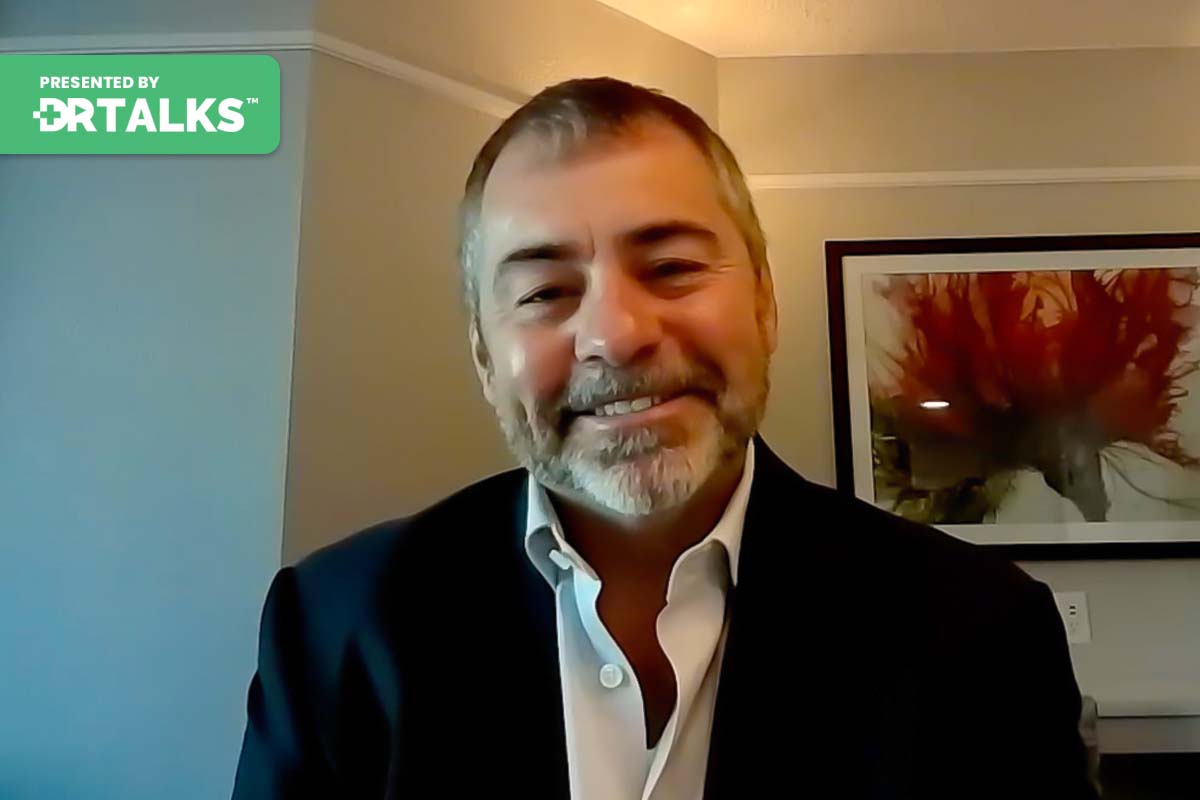

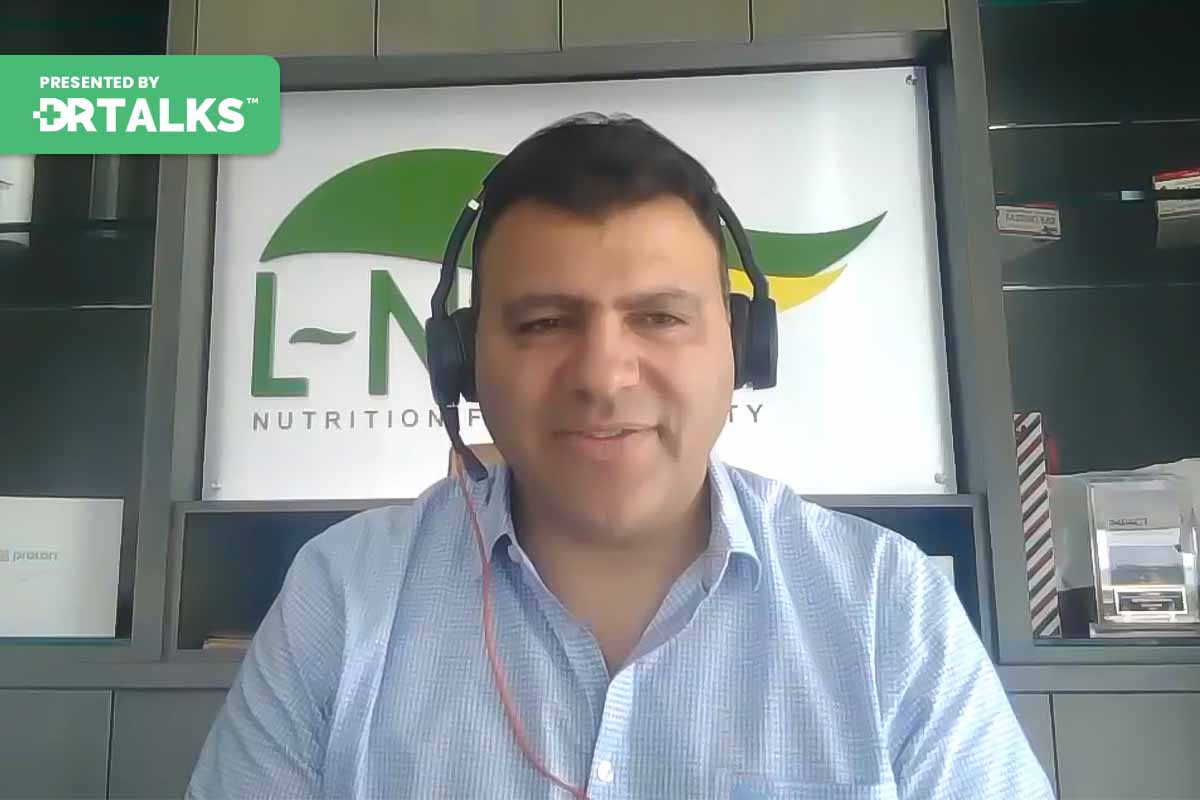
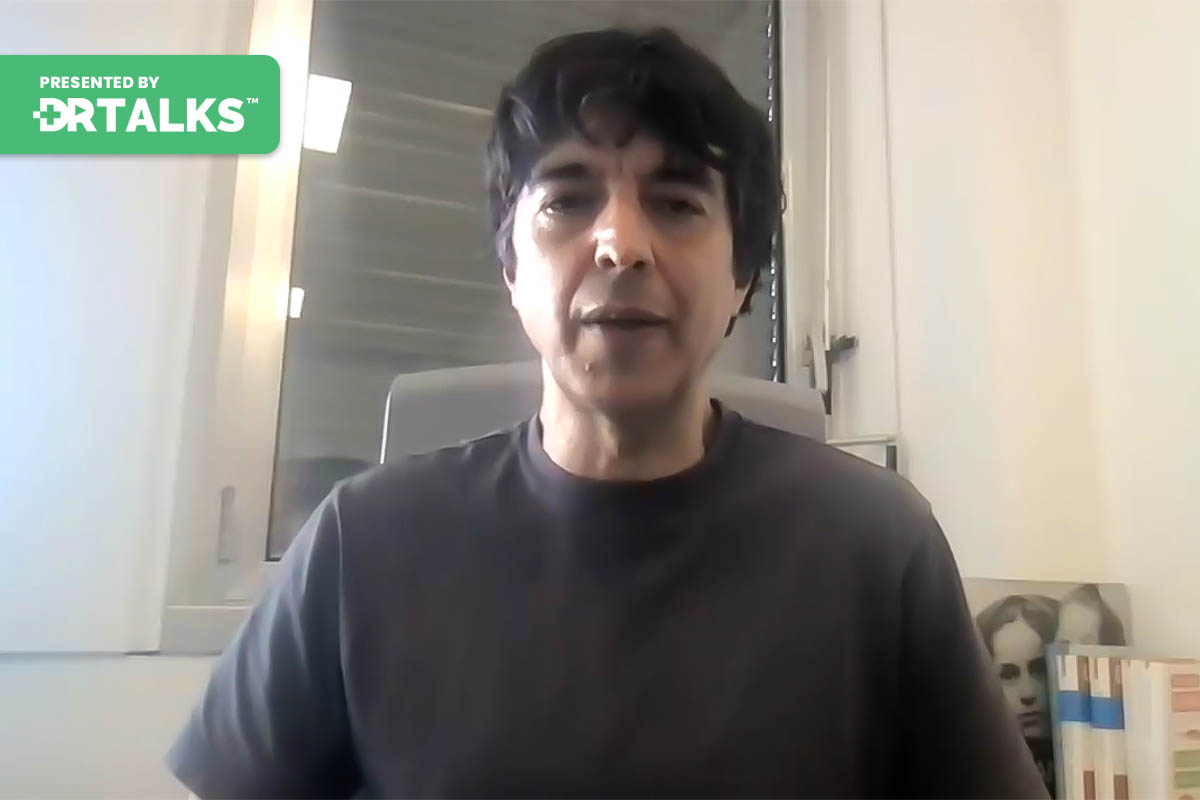


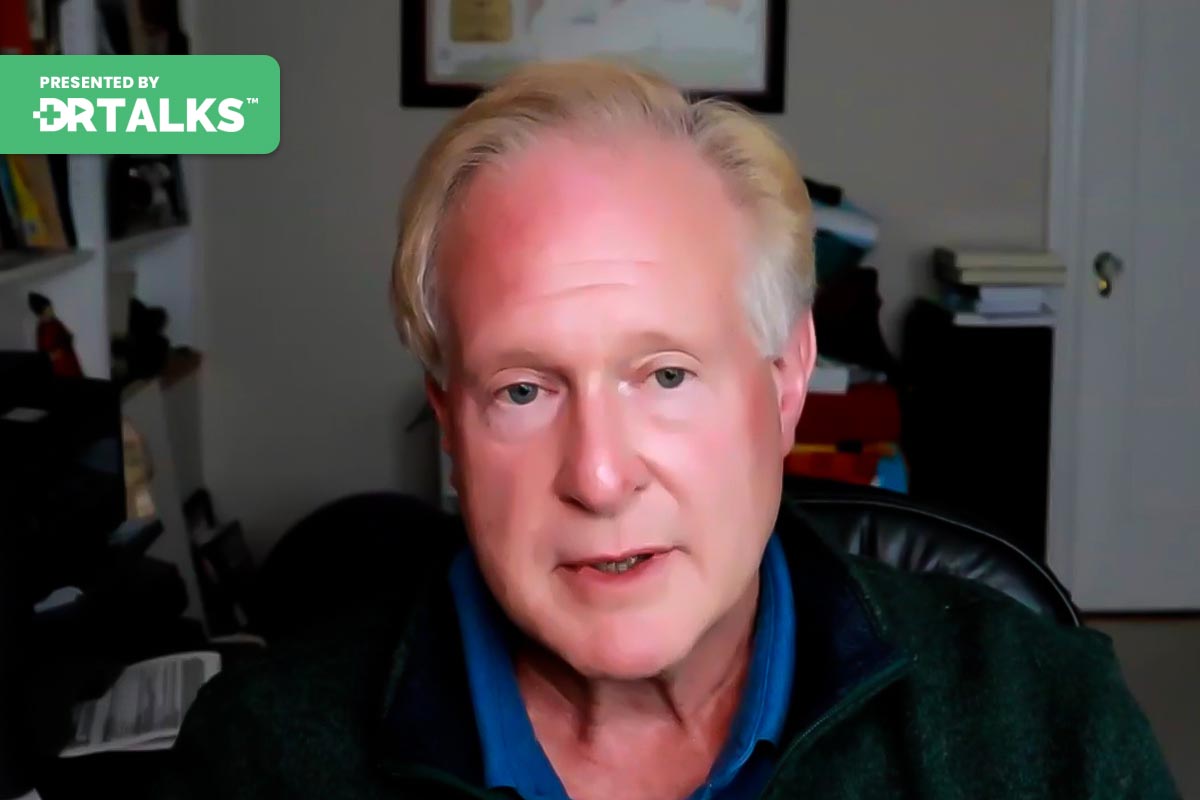



What a great interview, thank you! I’m really curious to know what brand of nitric oxide supplement and face/skin cream you recommend?
Hello Sandy. Thank you for reaching out and we’re glad that you have enjoyed this presentation.
Meanwhile, regarding your inquiry. We apologize as we are not allowed to give recommendations through this channel. It is crucial to consult a healthcare professional who can provide tailored recommendations based on your specific situation.
However, if you have questions for Dr. Felice Gersh, you may reach out to her at https://integrativemgi.com/ or to
Nathan Bryan, PhD at https://no2u.com/